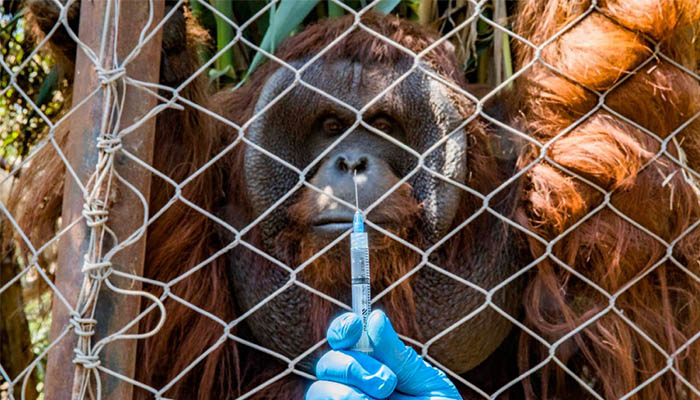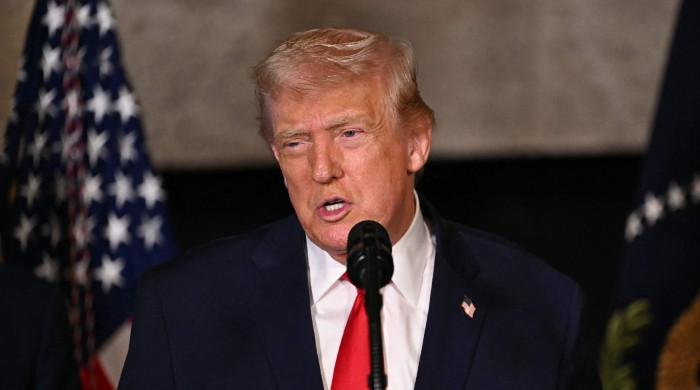Chilean zoo jabs big cats, orangutan against COVID-19
Bengal tiger and orangutan get experimental vaccine jab as they are considered at high risk of contracting COVID-19
January 04, 2022

- At Chilean zoo, Bengal tiger and Bornean orangutan, both members of endangered species, receive coronavirus vaccines.
- Chile becomes only Latin American country to zoo vaccinate animals.
- Viral disease has been found in zoo monkeys, apes and big cats, as well as in deer in the wild, in house pets and in minks.
Bengal tiger Charly and Bornean orangutan Sandai, both members of endangered species, have received coronavirus vaccines at a Chilean zoo in a Latin American first.
Charly, Sandai and eight other animals at the Buin Zoo in Santiago were chosen for the experimental vaccine campaign as they belong to species considered at high risk of contracting COVID-19.
The viral disease which has killed more than 5.4 million humans so far, has also been found in zoo monkeys, apes and big cats, as well as in deer in the wild, in house pets and in minks.
Along with three lions, two other tigers and three pumas, three-year-old Charly and Sandai, 26, received their second dose Monday of an experimental vaccine developed especially for animals but not yet available for sale.
They received their first shots on December 13.
"The idea is to protect the animals that are most susceptible to contracting the coronavirus while testing whether the vaccines generate immunity and, if yes, how long it lasts," said Sebastian Celis, head of the Buin Zoo's veterinary department.
Lions in Singapore, Zagreb and Washington, hippos in Belgium, Sumatran tigers in Indonesia and gorillas in Atlanta, Georgia, are among captive animals reported to have contracted the virus to date.
Buin Zoo has not tested any of its animals for coronavirus as none have presented symptoms.
Several US zoos have announced vaccination campaigns for their animal populations.
Nearly 90% of Chile's human population over the age of three have been fully vaccinated to date, and 62% have received a booster shot.
It is the only country in Latin America to have started vaccinating zoo animals.









